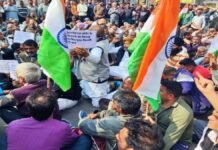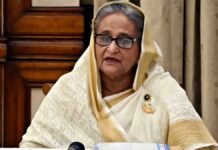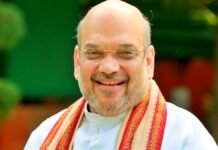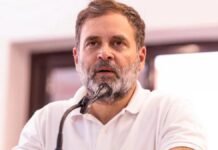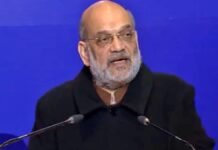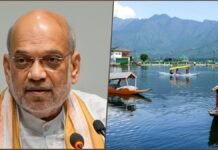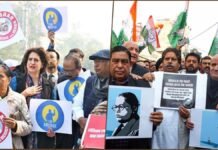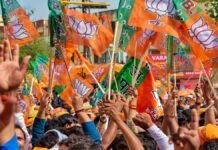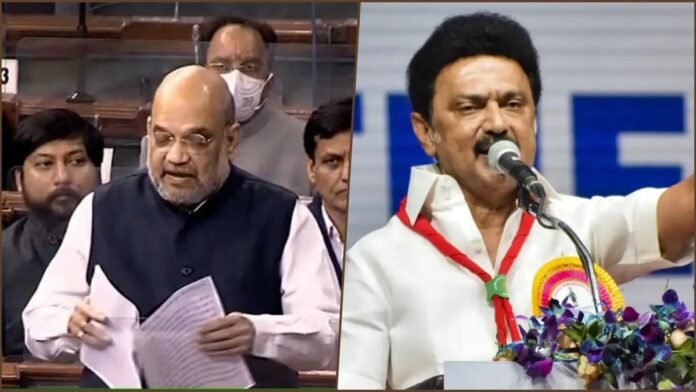
Key Points:
- The 2026 delimitation exercise, based on the upcoming Census, could redraw Lok Sabha and Assembly constituencies, sparking fears of reduced representation for southern states.
- Tamil Nadu Chief Minister MK Stalin has called an all-party meeting on March 5 to address concerns over potential seat reductions and alleged “Hindi imposition.”
- Union Home Minister Amit Shah reassured that no southern state, including Tamil Nadu, would lose parliamentary seats and promised proportional increases based on population.
- The issue has intensified political tensions between the BJP-led central government and regional parties in the South ahead of the 2026 Assembly elections.
Chennai: mDelimitation involves redrawing the boundaries of parliamentary and assembly constituencies based on population data from the most recent Census. It is a constitutional requirement under Articles 81 and 82, ensuring equal representation across constituencies. However, population disparities between northern and southern states have made this a contentious issue.
Southern states like Tamil Nadu have successfully implemented population control measures, unlike northern states such as Uttar Pradesh and Bihar, which have seen rapid growth. This has raised fears that delimitation could disproportionately increase seats in northern states while reducing representation in the South.
Stalin’s Concerns: A ‘Sword Hanging Over the South’
Tamil Nadu Chief Minister MK Stalin has been vocal about his concerns regarding delimitation. He argues that Tamil Nadu’s success in controlling population growth should not lead to reduced representation in Parliament. Stalin claims that Tamil Nadu could lose up to eight Lok Sabha seats, dropping from 39 to 31, if delimitation is based solely on population.
Stalin has also linked this issue to broader grievances against the central government, including allegations of “Hindi imposition” and inadequate fund allocation. In a statement, he warned that reducing seats for Tamil Nadu would “suppress the voice of the South” and called for collective opposition from other southern states.
To address these concerns, Stalin has convened an all-party meeting on March 5 in Chennai to discuss strategies for safeguarding Tamil Nadu’s interests.
Amit Shah’s Assurances: ‘No Seats Will Be Reduced’
Union Home Minister Amit Shah responded to Stalin’s claims during a BJP event in Coimbatore. He reassured that no southern state would lose parliamentary seats due to delimitation. Instead, he promised proportional increases based on population growth.
“I want to reassure the people of South India that Prime Minister Narendra Modi has kept your interests in mind. Not even one seat will be reduced. Southern states will get a fair share,” Shah said.
Shah accused Stalin of misleading the public for political gain ahead of Tamil Nadu’s 2026 Assembly elections. He also criticized the DMK government for corruption and poor governance, asserting that the BJP would form the next government in Tamil Nadu.
Projected Changes in Lok Sabha Seats
The upcoming delimitation exercise is expected to significantly alter India’s electoral map:
- Northern States: Uttar Pradesh could see its Lok Sabha seats rise from 80 to 128, while Bihar may increase from 40 to 70.
- Southern States: Tamil Nadu is projected to gain two seats (from 39 to 41), while Karnataka may rise from 28 to 36. Kerala, however, could lose one seat due to its exceptional population control efforts.
- Overall Increase: The total number of Lok Sabha seats is expected to rise from 543 to approximately 753 after delimitation.
These projections highlight the stark contrast between northern and southern states, fueling concerns about a potential imbalance in political representation.
Political Implications for Tamil Nadu
The delimitation debate has become a key political issue ahead of Tamil Nadu’s Assembly elections in 2026. The DMK is positioning itself as a defender of Tamil Nadu’s rights, using this issue to rally support against the BJP-led central government.
Stalin has also tied delimitation to his opposition to “Hindi imposition,” accusing the Centre of undermining regional languages and cultures. This aligns with Tamil Nadu’s long-standing resistance to Hindi dominance and its commitment to a two-language policy (Tamil and English).
For the BJP, Shah’s assurances aim to counter DMK’s narrative and build trust among voters in Tamil Nadu, where the party seeks to expand its presence.
Historical Context: Delimitation in India
Delimitation has been carried out four times since Independence in 1952, 1963, 1973, and 2002. The current allocation of Lok Sabha seats is based on population data from the 1971 Census. Since then:
- Southern states have implemented effective family planning programs, stabilizing their populations.
- Northern states have experienced significant population growth, leading to disparities in representation.
The freeze on seat allocation was extended until after the first Census following 2026 under the 84th Constitutional Amendment. This was intended to prevent penalizing states that controlled their populations but has now reignited debates about fairness.
Conclusion: A Delicate Balancing Act
The upcoming delimitation exercise presents a complex challenge for India’s democracy. While it seeks to ensure equitable representation based on population changes, it must also address regional disparities without alienating southern states that have excelled in development and governance.
As political tensions rise, all eyes are on how the central government navigates this contentious issue while maintaining unity across regions. For now, Amit Shah’s reassurances provide some relief for southern states but leave many questions unanswered about how delimitation will reshape India’s political landscape.

